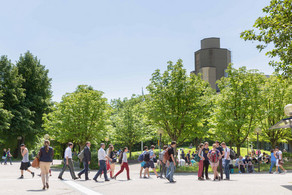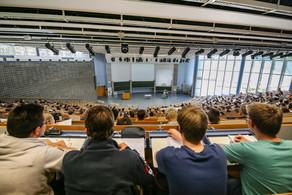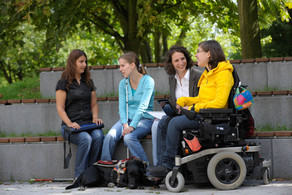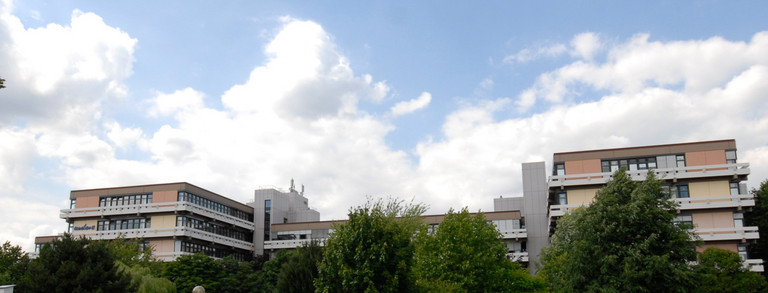Conference contribution at the final conference "Participation in change: research and practice for an inclusive future"

On 28.09.2024, the final conference of the curative education network took place at the SRH Wilhelm Löhe University of Applied Sciences in Fürth, which was organized in cooperation with the specialist academies for curative education in Bavaria. The conference united the perspectives of science and practice in an interdisciplinary framework, bringing together different perspectives on the aspect of participation.
Christoph Burzlaff was invited as one of a total of twelve contributors and presented his thoughts on the topic of lifelong learning in vocational training centers. Lifelong learning is often perceived in research and practice as a positive and voluntary process. Christoph Burzlaff's thesis looks at this point of view from a different angle by combining the two aspects of lifelong learning and vocational rehabilitation against the background of an assumed "obligatory voluntariness" in the sense of a learning necessity for the vocational rehabilitants. Vocational rehabilitants often have no choice but to take advantage of the aspect of lifelong learning in vocational rehabilitation centers in order to be able to continue to participate in (working) life. Together with the more than 40 listeners, the presentation was followed by a lively discussion about the lecture and the points of view presented, especially against the background of increasing transformation processes in the labor market, which particularly affect vocational rehabilitants.
Numerous other contributions promoted the exchange of ideas on inclusion and participation for vulnerable groups in society and provided space for constructive discussions. Particularly noteworthy is the inclusive perspective of the conference participants, which was evident throughout and led to new insights and networking efforts.




